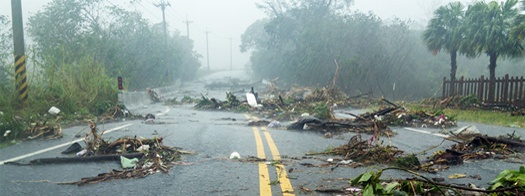
In terms of natural disasters, 2017 has proven itself to be a record year. The ongoing fires affecting Canada as well as the western United States of California, Nevada, Arizona, Oregon, Montana and Washington state were just the beginning of a tumultuous period that doesn't look like it will end anytime soon. These were coupled with back-to-back hurricanes that lashed Houston, Florida, Puerto Rico and the U.S. Virgin Islands and have left untold devastation behind. At no other time in recent history has the need for social workers been so urgent and necessary.
Why Social Workers are so Necessary
Social workers play a key role in the recovery of areas struck by disaster. Experienced in mobilizing resources, social workers are a vital force in the recovery and rehabilitation of affected areas. Only when professionally-trained, skilled and experienced social workers are involved do these areas recover quickly and normalize life within the community once again.
The Role of a Social Worker in a Disaster Area
The very nature of a natural disaster not only leaves the affected area decimated by the events that occurred, it places the region's most vulnerable populations in an even more precarious situation. A social worker is trained to identify these populations and connect them with the resources they need in order to support their recovery.
Social workers don't just focus on those populations that are most at-risk though. They work diligently to strengthen the entire community so that it can become functional and recover more quickly.
Social Work Can Begin Before the Natural Disaster
Ideally, a network of social workers is mobilized prior to the natural disaster's impact. While this goal could be more elusive in terms of disasters such as fires, tornados and earthquakes, there are typically signs that these types of events could worsen and require the need for more focused efforts. In the case of hurricanes, there is typically enough warning prior to an area being affected that social workers can assist with preparedness, evacuation and other activities designed to minimize the storm's effects.
During and After a Disaster, Social Workers are Crucial
Both during and after the disaster, the expertise of a social worker is critical in helping the community and its people recover. In addition to assisting the people who have been emotionally and physically impacted by the disaster, a social worker is also focused on helping the entire community recover.
Instead of taking over the process, though, social workers function more as facilitators in this area. This requires that the social worker have a knowledge of the community's available systems and resources to connect the affected people with the ones necessary to support their recovery.
Disaster Social Work as a Career
An immense desire to help people, as well as an ability to assess the needs of both the people affected and the community itself and determine which of the resources available are the most ideal for meeting the goals of recovery, lend themselves to a satisfying career in social work. Being on the ground and helping vulnerable populations in a hands-on manner that can make both an immediate and long-term difference in their lives is the impetus that many people experience that leads them to social work.

